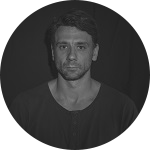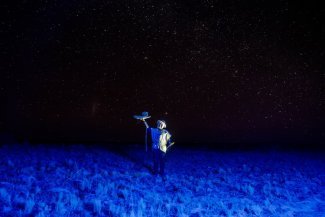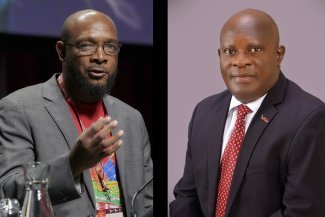“She was murdered for being a woman, for being a mother, for being Mapuche and, above all, for speaking out.” Rubén Collío is talking about Macarena Valdés, 32, who was his partner and a mother of four. Macarena was found by her son Francisco when he came home from school, hanging from the ceiling in their kitchen. He was 11 years old then, in August 2016, and his younger brother, Antulen Wawentu, who witnessed the events, was only a year and a half.
The Chilean Investigative Police concluded that it had been a suicide, on the basis of an autopsy performed by one of its forensic doctors. A year and a half later, Rubén has managed to prove that Macarena did not commit suicide, that she was already dead when she was hanged, simulating her suicide.
Indiscriminate violence and human rights violations are common in the Biobío and La Araucanía regions. These are the regions with the highest number of Mapuche communities in Chile and are commonly known as the red zones or conflict zones (where the Mapuche people, claiming ownership of ancestral lands – to preserve them, and in the process preserve their way of life – clash with the agricultural or forestry companies that benefit from the exploitation of their lands).
For the Mapuches, the territory they inhabit is called Wallmapu in their language (Mapudungun), while they identify themselves as Mapuche or ‘people of the land’. According to their ancestral culture they are connected to the Ñukemapu (Mother Earth), and they coexist with the four elements: earth, air, water and fire. They consider forests, rivers or animals, their brothers. They speak with the wind and give thanks to Chau Ngenechen (father protector or God) for the fruits of the harvest.
The Mapuches do not have any written documents setting out their philosophy since Mapudungun was a non-written language until 40 years ago. Their culture and traditions have been handed down from grandparents to grandchildren, from parents to children, through the spoken word, at the trawun, a gathering around a fire. In addition to their language, they have their own medicine, architecture, music, clothing and sports. Their culture is rich and always relates to nature. And to preserve it they try to prevent the winka, non-Mapuche people, from knowing about it.
In the 20th century, during the dictatorship of Augusto Pinochet (1973-1990), many Indigenous peoples left the rural areas for the cities as they found it impossible to make a living. Not only did they abandon their roots and way of life, but, for fear of rejection by the rest of society, and of continued attacks, they also changed their names and surnames so as not to be identified as Mapuche.
The main pillar of the Chilean economy, inherited from the dictatorship, is based on the massive extraction of natural resources. In the Biobío and La Araucanía regions, the farms belong mainly to the forestry and hydroelectric industries. The companies that carry out these operations are supported and subsidised by the state.
When some of these companies come to settle in the territory where a Mapuche community lives or in its vicinity, confrontations arise, because negotiations or their efforts to reconcile positions are usually non-existent or unfavourable to the weakest party: the Mapuche community.
These disputes, furthermore, usually last several years, either reaching a stalemate or hardening dramatically. The military police (GOPE) often intervene violently, on the side of the companies, intimidating the Mapuche communities, acting indiscriminately against women or minors. And the force used to end disputes is surrounded by silence, since the affected communities are in places that are difficult to access and have little means of communication.

Tumba de Macarena Valdés, asesinada el 22 de agosto de 2016, cuando tenía 32 años y en presencia de su hijo menor.
Macarena’s death was one of the violent episodes that has most moved the Mapuche community. “She was found dead in strange circumstances the day after receiving threats,” explains Rubén Collío, her former partner.
Two years earlier, the Austrian company RP Global began construction work on a hydroelectric plant in the Tranguil sector, in the Panguipulli district.

La familia Collío-Valdés posa para un retrato familiar, dejando lugar al espacio que ocuparía Macarena Valdés.
Several women from the community led the protests against the installation of the plant. Led by Julia Quillempan, 60, Macarena did not take long to join them. The company committed several irregularities such as carrying out works without the necessary permits, travelling along a private road and destroying two ancestral cemeteries as their work progressed.
Rubén, the spokesperson for the community and an environmental engineer, complained to state agencies about these irregularities. As time passed and they did not receive a response or any help with their complaints, the women, desperate in the face of abuse, blocked the road, thereby suspending the work of the company for a day. Julia still remembers the operators shouting: “They’re going to kill you all!”

Un camión forestal cargado de troncos a su paso por una comunidad Mapuche.
“Since then we have faced constant threats. They have circled our houses at night. Several times I found the door of my house forced open. There were almost daily telephone calls, they threatened to burn our houses with our families inside, I had to change my number because sometimes my son answered the phone and they told him that his mother was going to be found dead,” says Sandra, Julia’s niece.

Presa Ralco, construida en el Alto BioBío a finales de los años noventa y enésimo punto de conflicto de los mapuche, quienes la sufren como un destrozo de su hábitat.
The Collío-Valdés family was also threatened, as were the rest of the opponents of the power station. “On 21 August, three guys in a vehicle bearing the name of their company went to the owner of the piece of land where we live to threaten her, to tell her that if she does not throw us out, something very bad would happen to us as a family. On 22 August, my wife was found dead in strange circumstances. There was no reason for her to take her own life.”
Rubén tells the tale of the tragedy and the inexplicable nature of the events: “She was a very tough person, very brave, steadfast in nature, extremely strong. That suddenly, out of nowhere, she would decide to take her own life seems very strange. We did not believe it, nor did our neighbours. It is like the kind of situation that we experienced during the dictatorship.”

Gabriel Beroiza, “lonko” (dirigente) de la comunidad pehuenche El Barco, camina por los alrededores de su casa. En el Alto Biobío es donde se encuentran más comunidades mapuche que intentan vivir conforme a su cosmovisión.
The PDI investigation declared the case closed, after accepting as valid the autopsy by the Legal Medical Service, stating the death was a suicide by hanging. From the outset, both Ruben and Macarena’s family did not doubt that it was a murder and requested the forensic report. When Dr. Luis Ravanal saw the study, he warned Rubén that the medical examination had not been carried out with total efficiency and that unfortunately it was not the first time that an expert report of dubious rigor had reached him.

El caballo de Gabriel Beroiza, a las puertas de su hogar, y contra la ventana un teléfono inteligente. Los mapuche siempre se han caracterizado por adaptarse al medio sin renunciar a su cultura.
From that moment Rubén looked for ways to raise enough money to be able to have the corpse exhumed and a second autopsy carried out on Macarena.
With much effort, a support network of international associations that back the Mapuche cause, and charity concerts throughout the country, they managed raise enough money to pay for an expert report. It was submitted on 9 August 2017 and led the prosecution to consider reopening the case, allowing for the subsequent exhumation of the corpse and a second autopsy. The report by the forensic doctor Luis Ravanal leaves no room for doubt: “There were no signs that showed that the body was hanged while still alive.”

Una mujer con vestimenta tradicional mapuche prepara la comida durante un Trawun (reunión alrededor del fuego) entre varias comunidades mapuche.
A year and a half after the death of Macarena Valdés, the family’s instincts were proved right: "It is not news for us, nor for the community, but the truth is that it is painful to confirm that there is so much evil. For the women of the community it was a relief to be able to prove that they were not lying,” says Rubén with a resigned tone.

Efectivos de bomberos intentan extinguir un incendio forestal. Las masivas plantaciones de pino y eucalipto son las responsables de la escasez hídrica, lo que, sumado a las altas temperaturas del verano, facilita el número y magnitud de los incendios.
Macarena’s death is another in a long list for this conflict. Despite his grief, her widower does not doubt it: “We must follow her example. Out of respect for her, we have to get back on our feet, we have to rethink and keep fighting.”











